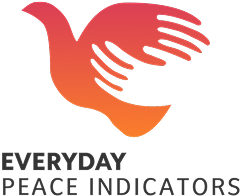Where we work?
Home / Where we work?
Informing peacebuilding through everyday lived experiences
Our work supports peacebuilding around the world. We work glocally at the neighborhood level, including in Colombia, Bosnia & Herzegovina, Sri Lanka and the United States.
Our projects have explored the ways communities define peace, reconciliation, coexistence, safety and security.
Our Locations
Project Focus Areas
EPI has conducted multiple projects in Colombia to understand community perspectives on justice and coexistence. Key initiatives include gathering everyday indicators from rural conflict-affected areas, collaborating with the Truth Commission to assess its impact, creating a peace barometer and designing creative ways to give back our data.
In Sri Lanka, our project explores local understandings of peace, reconciliation and social cohesion. By gathering these insights, we design projects and track shifts in community dynamics with the aim to build a more cohesive society.
Our project in Mostar tackles the issue of neglected public spaces that reflect post-war divisions. By engaging with local residents, we aim to transform these areas into inclusive spaces and foster a positive narrative across the Western Balkans.
In Oakland, California, we are developing innovative, community-focused approaches to public safety reform. Working with a range of community organizations and communities, our goal is to develop a more effective, community-centered policy framework that promotes safety and well-being.
The Everyday Peace Indicators framework in Afghanistan captures how local communities perceive peace, security and the causes of violent extremism. Despite challenges to international CVE programs since the Taliban's 2021 takeover, these indicators remain key to identifying new local priorities and informing future peace and security efforts.
To ensure there is a strong connection between programs and the needs and perspectives of conflict-affected individuals, we developed the Grounded Accountability Model (GAM). GAM explores how the EPI approach can be adapted across different users, user-cases and contexts, with the goal of enhancing the overall impact and effectiveness of peacebuilding efforts glocally.






